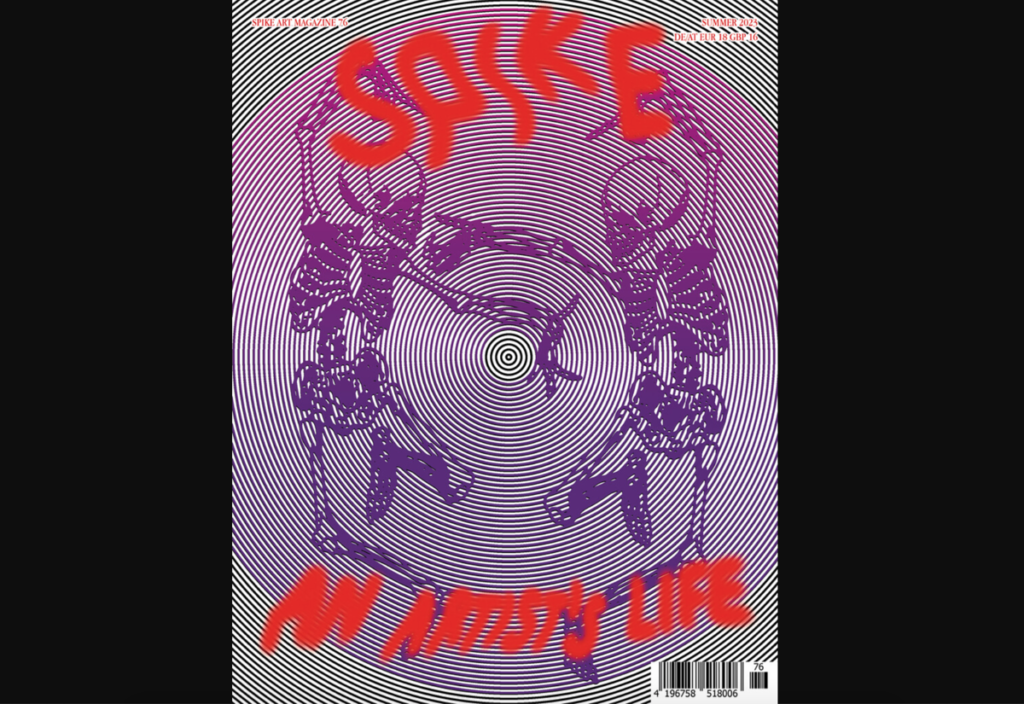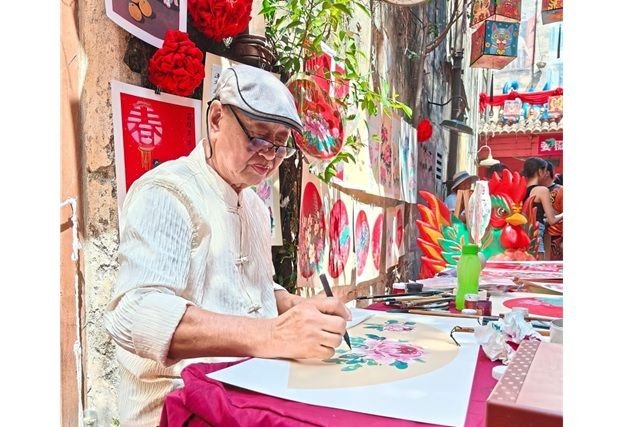Our summer issue is dedicated to artists. From the ultracontemporaries to those whose success comes too late to be enjoyed, Spike 76 is about aging, enduring, and surviving one’s work. How can they even emerge in our oceanic present, faced with the internet’s image infinity, scripted trajectories, and the pressure to juggle business acumen and semi-ironic mystique? Why do some artists fail or get bogged down in the marshes of the mid-career, while others are boosted to established veneration?
Curious to know how the story ends—and begins again? Then pick up a copy and see for yourself what an artist’s life adds up to.
Get Spike 76 here! And don’t forget to join our newsletter.
From the issue:
Travis Diehl on the ultracontemporaries
This is what it takes to be an artist in 2023: “To project a certain savviness about business and your own status as a marketable entity, and to convey that in your work in a way that isn’t so insider-y or navel-gazing that it alienates your audience.”
Lauren Elkin on how to make the artist woman exceptional
The system can handle rebellion – so long as it’s construed as a myth. “I am wary of the way the biographical allows artists to be turned into products marketed to us, in period dramas, prestige television, museum exhibitions, and gift shops.”
Barry Schwabsky on the four seasons of an artist’s life
The art critic chronologizes the phases of an artist’s existence, which reach beyond even one’s mortal ends: emerging, mid-career, established, and posthumous. The reality, of course, is murkier than any encyclopedia of rubrics and rules.
Interview with Cindy Sherman
The artist walks Kunsthalle Zürich director Daniel Baumann through her latest exhibition, unpacking her interest in the grotesque, ways of abstracting aging, and a conviction that what’s scary can also be very funny.
Martin Wong
The late painter is having a moment, kindled by an interest in intersectional figuration twenty years after his death. Yet his images of society’s margins are as enigmatic as they are empathetic: “Wong lets us see his life in the way he saw others—intimate yet confounding, at hand and yet out of reach.” By Solomon Adler
Interview with Elizabeth Peyton
The painter talks with National Portrait Gallery director Nicholas Cullinan about beauty that can change one’s life, bringing a world out of a face, and why a cathedral is a painting.
Hans-Christian Dany on Merlin Carpenter’s “MIDCAREER PAINTINGS,” Kunsthalle Bern (2015)
Insofar as it was a critique of economic reason, the show was garnished with the irrational fun of stupidity. It captured Carpenter’s anger at the expectations placed on a mature artist. For who likes to be reminded that one is getting older?
Kyla McDonald “What Makes a Dead Artist So Appealing?”
Having spent the last five years in the company of women-artists dead and ignored, the curator makes the case for rewriting art history. “There is something uncomplicated about that potential—you don’t have to deal with any record of awkward receptions or the peaks and troughs of a career.”
Tom Eccles “Why Do Artists Fail?”
How might one continue along the path toward success while avoiding its pitfalls, asks the Bard CCS Director? “One piece of advice would be: If you’re lucky enough to create a super-successful work that goes ‘viral,’ stop making that work.”
…along with Rhea Dillon’s Artist Favorites; Nina Pohl on Sigmar Polke; Calla Henkel bidding Berlin auf Wiedersehen; Maximilian Geymüller on David Robbins’s Talent (1986); Hans-Jürgen Hafner on fictional artist Angelika Wiesenthal; Olivia Kan-Sperling on it-girl inflation and wanting to live in a celebrity’s skin; Nolan Kelly against enfant-terribles biopics; Leonie Huber takes stock of Vienna’s new offspace scene; plus, print columnist Tea Hacic-Vlahovic on the deathly agony of being an artist.
Interested in getting Spike 76—An Artist’s Life at a discount? Then head over to our webshop and subscribe!






